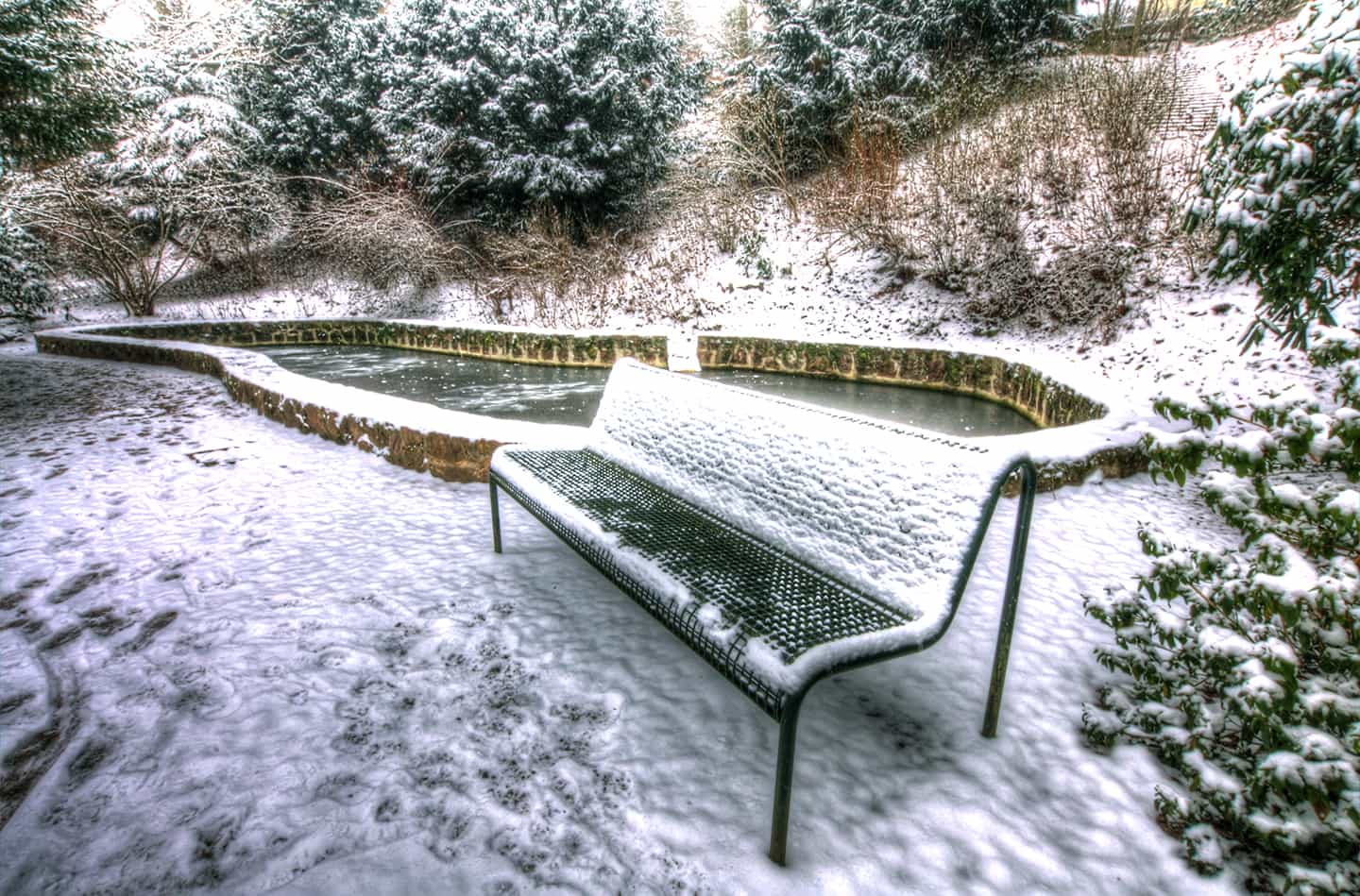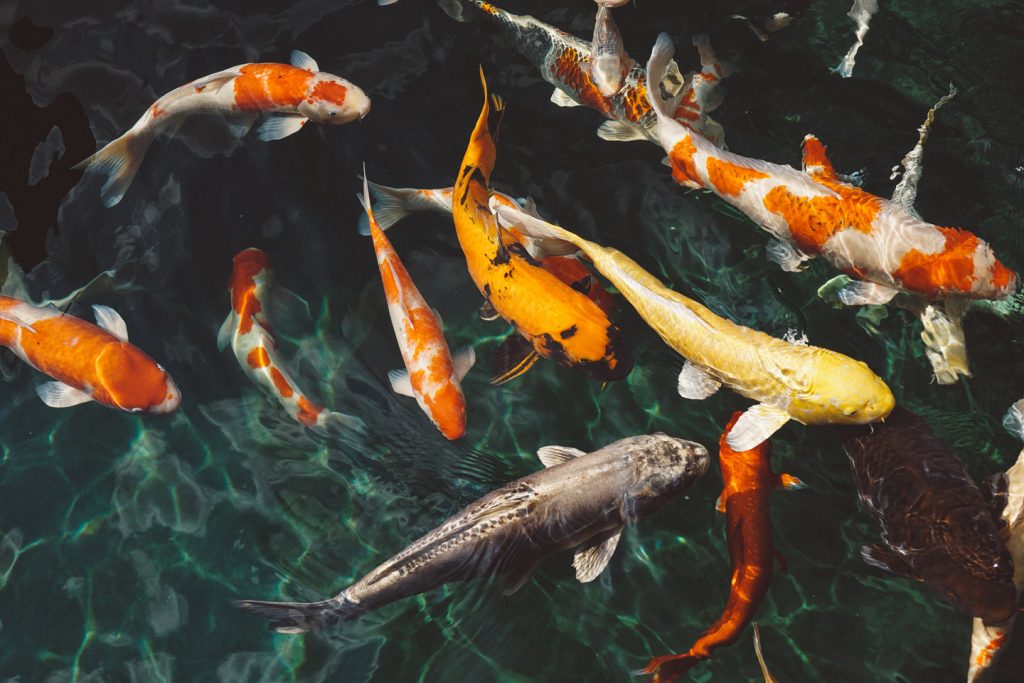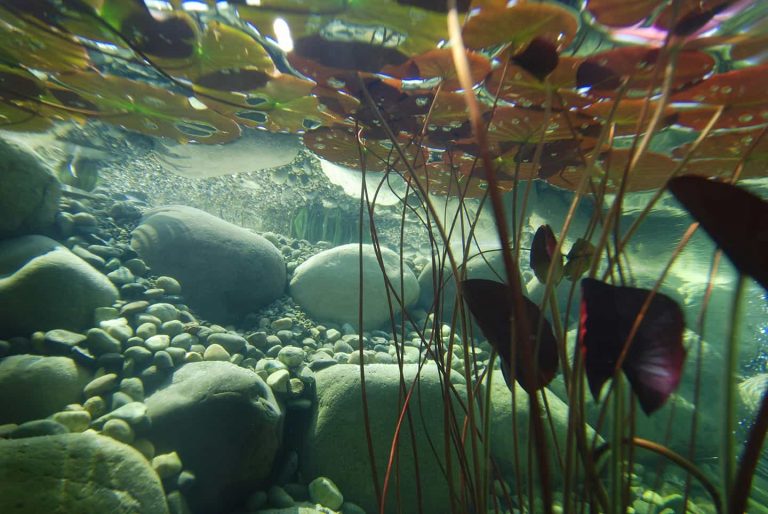Heating Water in A New Koi Pond

Heating Water for Optimum Koi Pond Conditions
Heating Water in a new koi pond – when the snow is heavy around your pond you should consider getting a heater. However there are pro’s and con’s, since we are talking of new koi ponds here, and assuming the decision has been made that the water will be heated to maintain a constant temperature winter and summer, then here are a few important considerations to take into account when designing the heated koi pond.

Important Considerations When Heating Water
First, if you can, get a competent chemical engineer to actually design the type of heater and it heating characteristics. Then decide upon heating fuel to be used for heating and maintaining pond water temperatures.
Here again a chemical engineer is the right person to help you decide since it’s a function not only of capital (installed) cost but also correct choice of fuel and arrangement to transfer heat from the fuel to the actual circulating pond water.
Getting the right answer is a function of many variables and remember the installation is for a lifetime.
Testing pond water can in itself become an intriguing and interesting hobby. Get a reliable test kit however.
[ninja_tables id=”2270″]
The design and control of a heated koi pond is complex by virtue of the significant differences in ambient temperatures and other prevailing weather conditions (eg wind will increase heating load as will falling snow and freezing ambient temperatures)
Heating Koi Pond Water
I don’t intend to discuss pros and cons of heating water for the benefit of the koi. Rather I will focus on the engineering and safety aspects. This is not intended to be a comprehensive discussion. Rather, I will point out the most important considerations to be taken into account if you do wish to go ahead and install koi pond water heating.
The koi pond water heating system is rarely operating in a state for any significant length of time one since ambient temperatures change considerably. This means that instruments and control loops are required to maintain optimum pond water temperatures.
With the help of the engineer decide if direct water heating (ie fuel is burned and it immediately heats the water) or indirect water heating (fuel is used to heat a heat transfer fluid which in turn heats the circulating water) is the preferred method of exchanging heat from fuel to recirculating pond water
Decide upon fuel or method of heating water for the koi pond and extrapolate this into the future… energy costs are never constant and there is always a trade off between water heater running costs and capital costs for the pond water heating system. Remember if hydrocarbon fuels are chosen to heat the recirculating koi pond water then storage of fuel is required.
Back-Up and Safety
Back up and safety systems are vital. Ask lots of questions, for example what will happen if the pond pump circulating system fails.
Where will you locate all the necessary equipment and control systems? Once again, safety plays a vital role in making this decision.
Who will be responsible for this pond heating plant and especially so when you are away from home?
This list is not comprehensive, but hopefully it will make any koi keeper acutely aware that heating a koi pond is not a DIY job. Heating pond water needs critically important equipment equipment and safety systems to be installed. If you can’t afford a specialist, don’t even try to heat the water in your koi pond.






